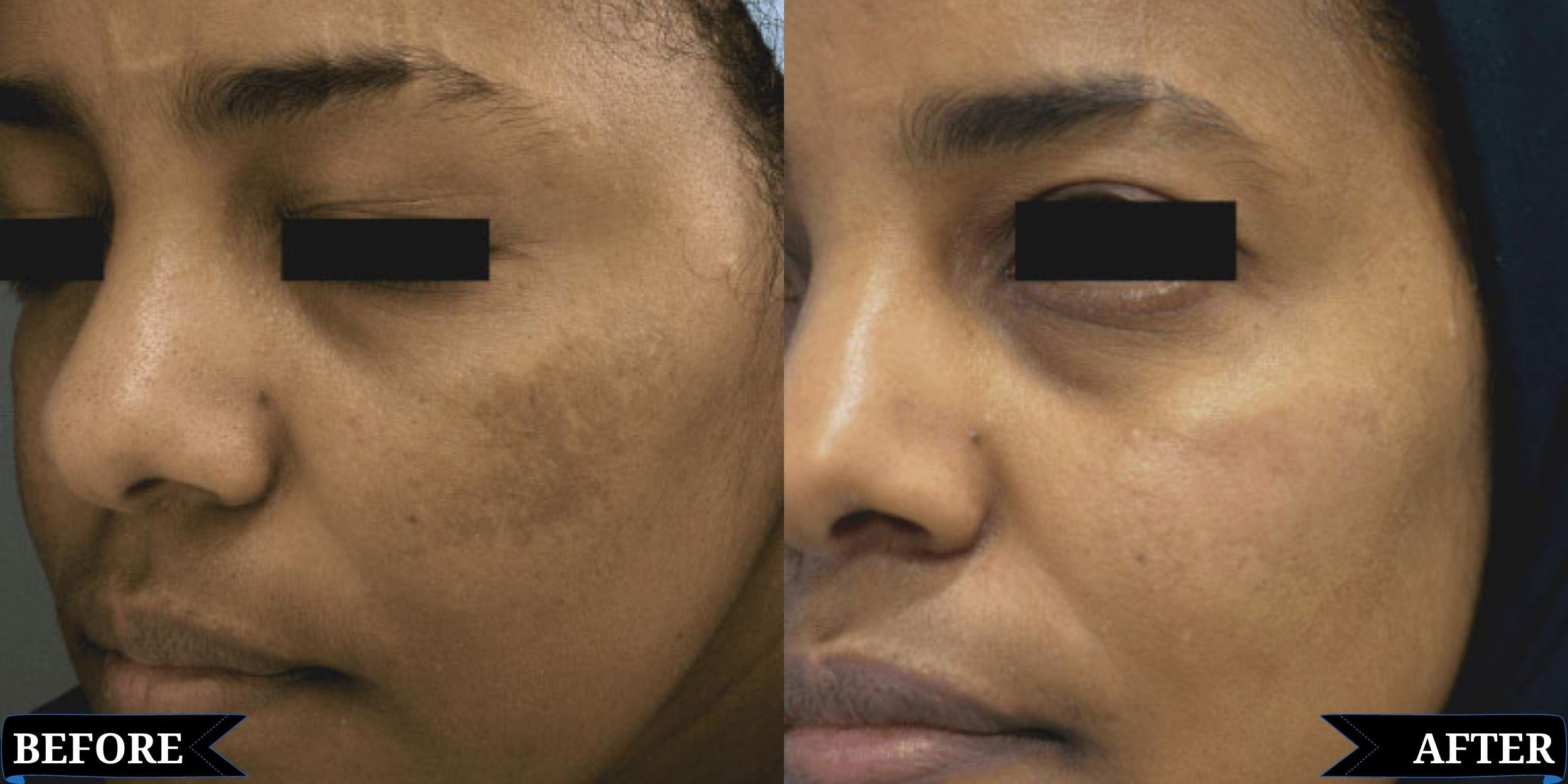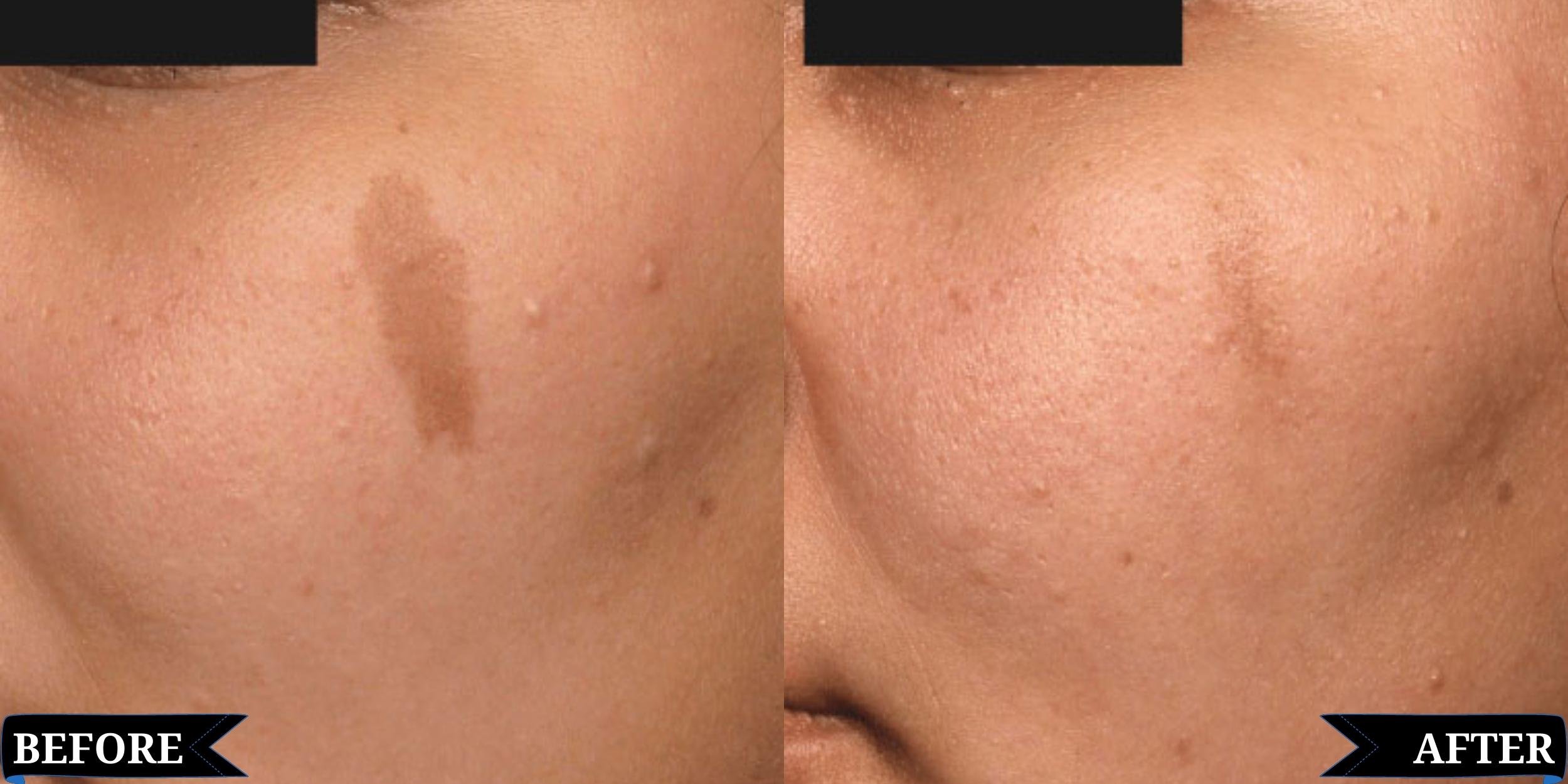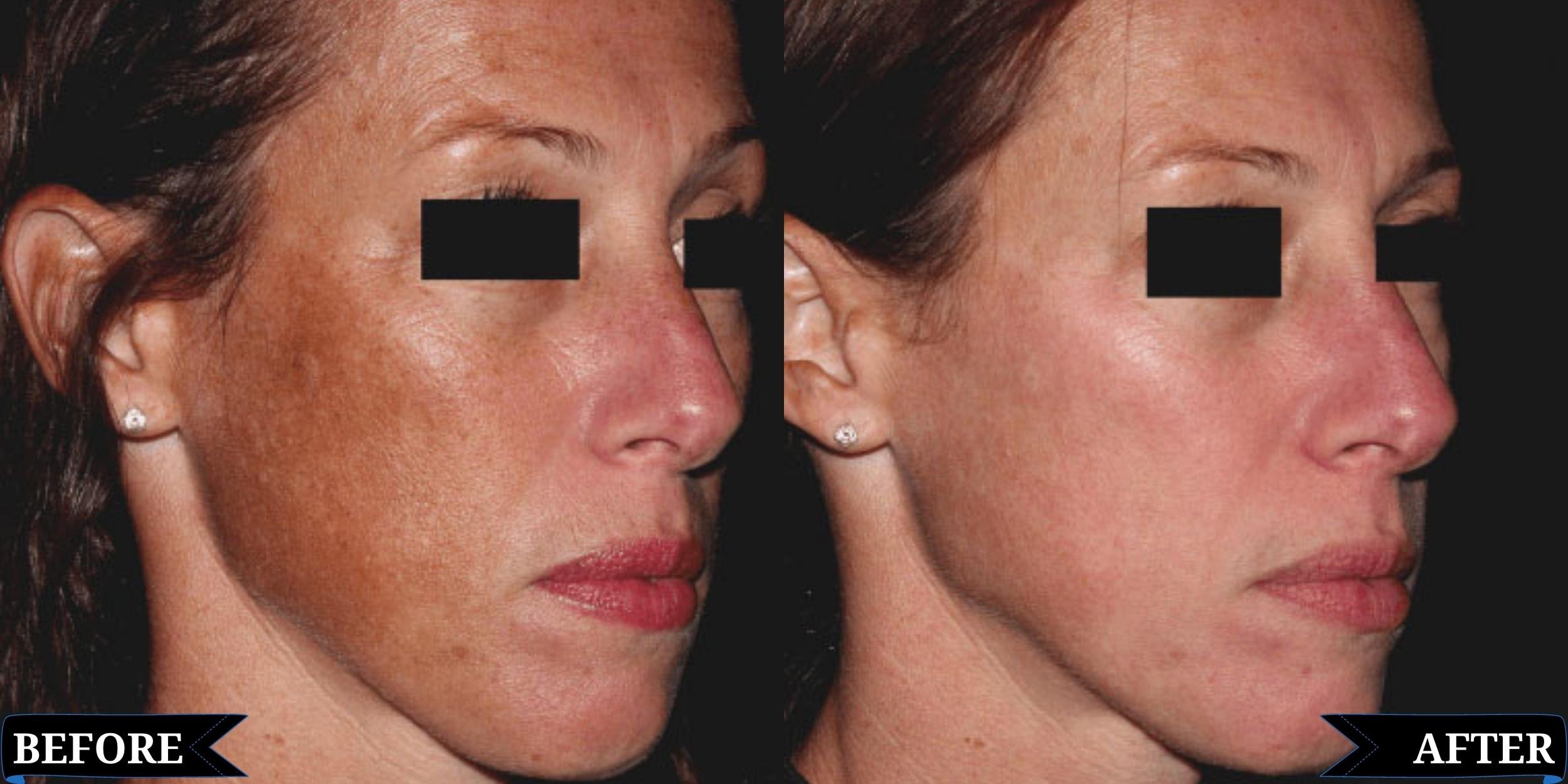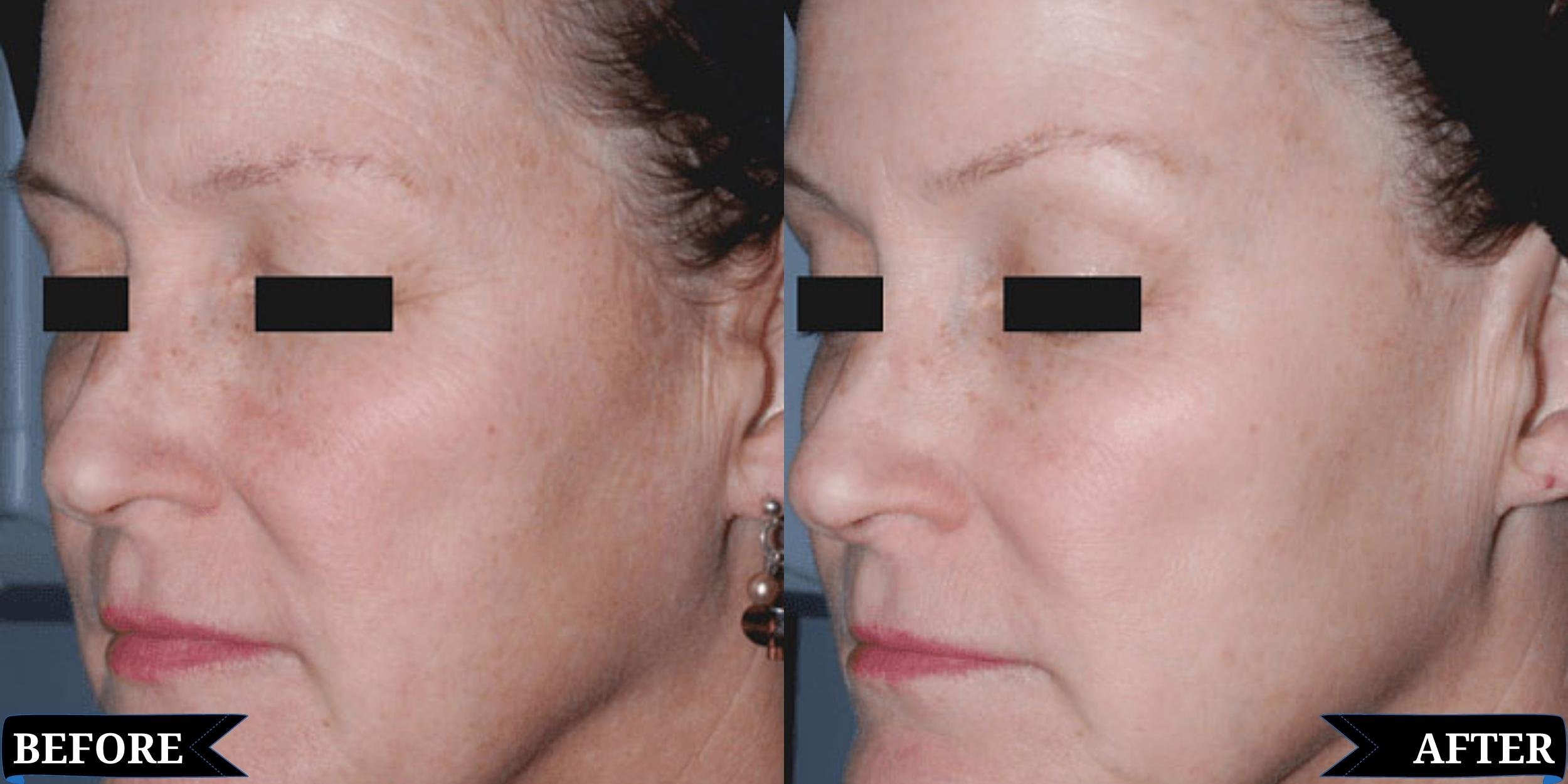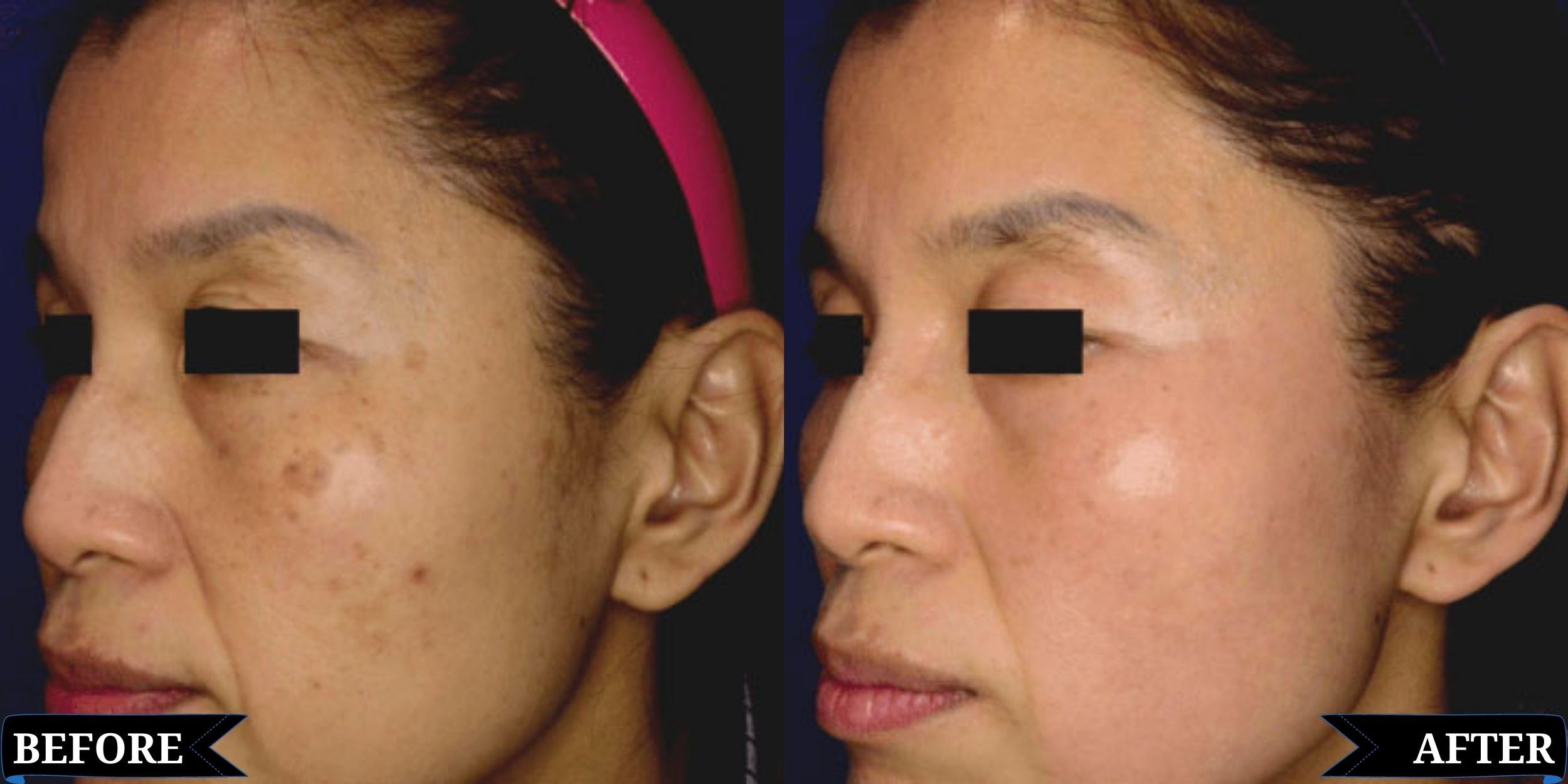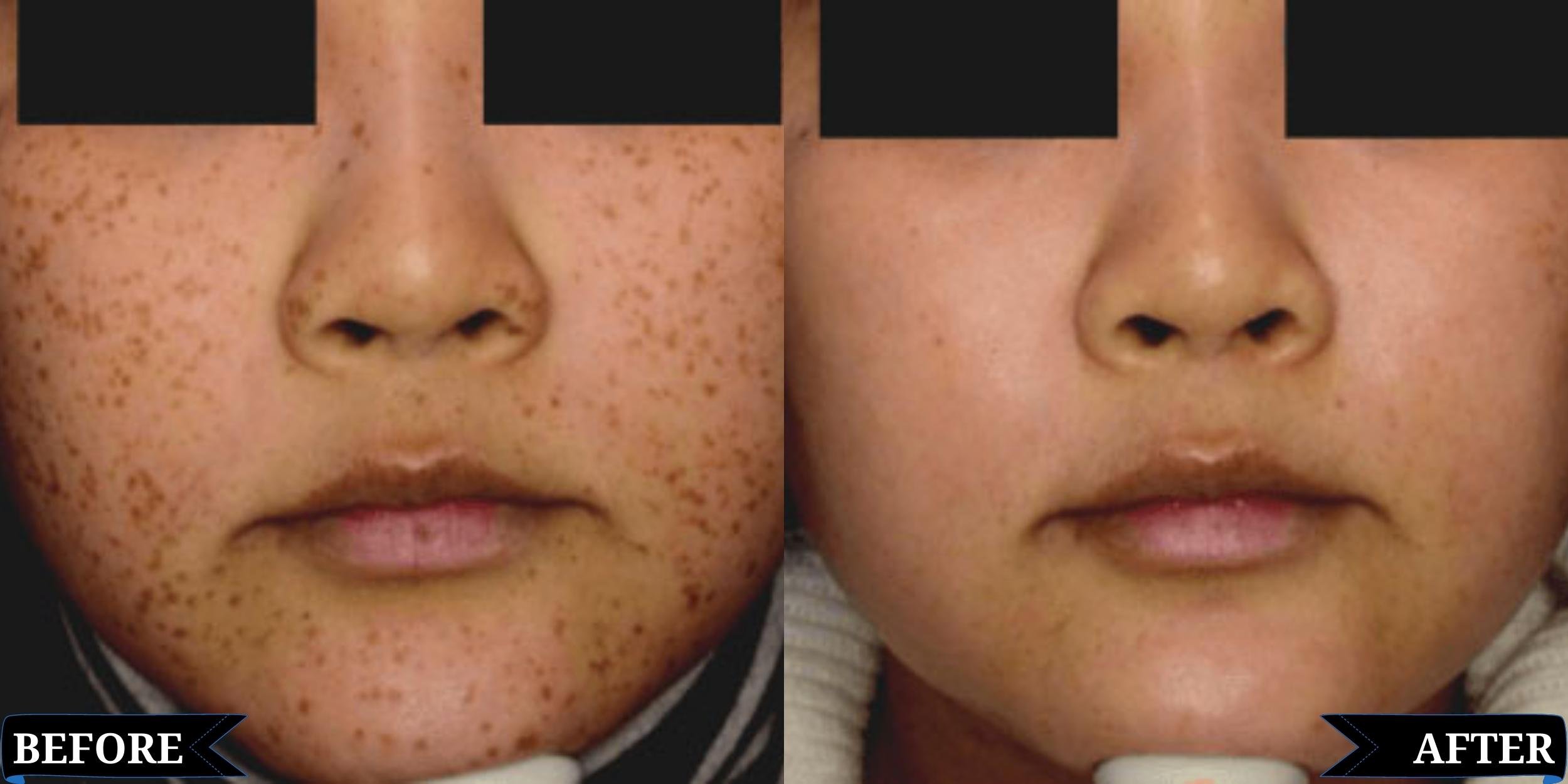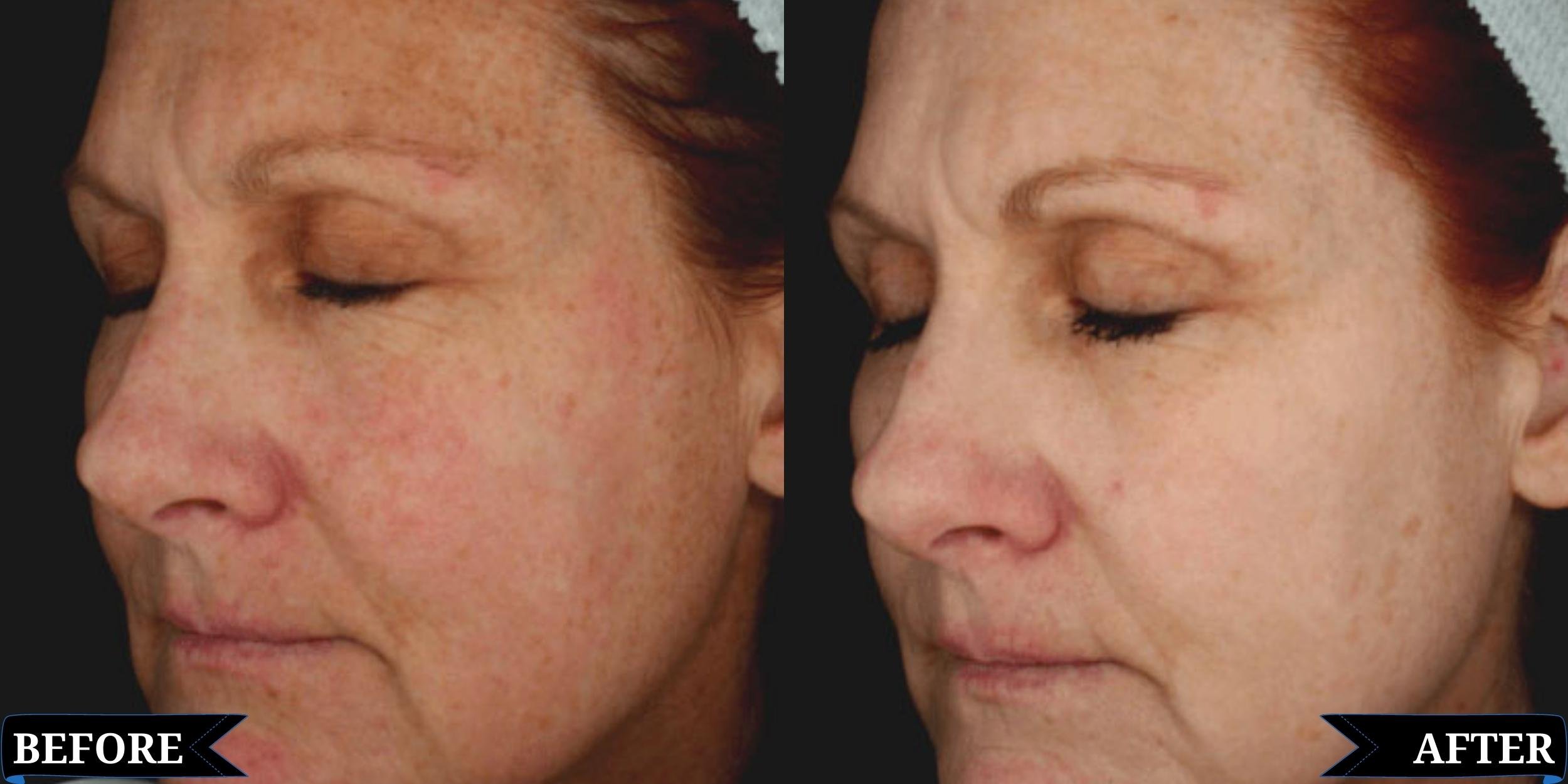
Brown/Dark/Sun Spots
Brown/Dark Spots (aka Melasma) is a type of hyperpigmentation that results in dark, blotchy spots on the face, neck, chest, and sometimes forearms. Melasma can occur in anyone, but is much more frequently found among women, especially women who are pregnant when it is called chloasma and is sometimes referred to as the "pregnancy mask." Although not a painful or dangerous problem, Melasma can be very distressing emotionally because of its alteration of appearance. Melasma is not always a permanent condition. It may disappear in a woman several months after she gives birth, but may reoccur after unprotected exposure to the sun. While there is no cure for Melasma, there are safe and effective treatments in order to undo and reverse its appearance of it.
What causes it?
While the precise cause of Melasma is unknown, certain individuals have a genetic predisposition to developing this condition and it more frequently occurs in people with brown skin. Sun exposure can also make the development of Melasma more likely, so women in tropical climates are more prone to the condition.
Sometimes patients may achieve symptom relief if they stop taking estrogen and progesterone, the hormones linked to the disorder. Other treatments for Melasma may include topical skin-bleaching agents, chemical peels, microdermabrasions or dermabrasion, and laser treatments.
How does it work?
The technology behind Focus Lens Array + PicoSure Laser creates short pulses of laser energy that go straight to the pigment of melasma, breaking it apart so your body can naturally and efficiently dispose of it. It also simultaneously rejuvenates the skin to improve tone, elasticity, and texture. The laser smoothes and improves the overall appearance of your skin diminishing wrinkles, sun spots, and acne scars. Treatments are short, painless and results can be seen much faster than other conventional treatments and methods. Depending on the skin condition, results can be seen as soon as the first treatment.
FAQ
-
Melasma is a condition that produces brownish or grayish discolorations on the skin, most often on the cheeks, chin or forehead, but also on other parts of the body that receive regular sun exposure, including the arms and neck. Women are much more likely to develop melasma, as are those with a family history of the condition and those with darker skin tones. Because it can often occur on the face during pregnancy, melasma is sometimes referred to as “the mask of pregnancy.”
-
The underlying cause of melasma is not well understood, but researchers know there is a link between the condition and unprotected sun exposure. Hormonal changes such as those associated with pregnancy and some types of birth control also appear to play a role. Chemical ingredients in cosmetics and certain skin care products also may cause symptoms of melasma to worsen.
-
The PicoSure laser has proven very effective in treating discoloration due to melasma, directing highly-focused beams of energy directly to affected areas of the skin and breaking up pigments so the body’s waste processes can carry them away over time. Because the energy is delivered in a very precise manner and absorbed by the darker pigments, the healthy skin surrounding the treatment areas remains unharmed. In addition to breaking up pigments, the PicoSure laser also stimulates the production of collagen and new skin cells for better healing.
-
Prior to treatment, the skin in the treatment area will be cleansed and a cooling gel will be applied to numb the skin. The laser handpiece will be passed over the skin, firing off laser energy very rapidly. Once treatment is complete, a second cream may be applied to soothe and moisturize skin. Most procedures take about 15-30 minutes and there is no downtime.
Sun Spots
Do you struggle with brown spots on your face? Are you tired of trying to cover them with makeup? If you’re wondering what they are and what you need to do to get rid of them, then you’ve come to the right place. Two conditions, melasma and sun spots/damage, are often confused with one another because they look a lot alike. However, understanding each and distinguishing which one you have is critical because each has a different underlying cause and therefore, very different treatment.
Melasma Vs. Sun Spots
Melasma causes facial discoloration of varying shades of brown. It can affect either men or women, but usually affects women much more. The reason melasma happens is that people with it have pigment-making cells (melanocytes) that are overly sensitive to hormonal changes. The melanocytes make way too much pigment (melanin) causing the brown spots to form in response to normal hormonal changes such as pregnancy, menopause and oral birth control pills. Because of this, melasma is considered a chronic skin condition that has no cure.
Sun spots, or sun damage, (a.k.a. solar lentigines, seborrheic keratosis, freckles, liver spots) are brown spots that are either on or very near the surface of the skin which makes them a lot easier to treat. Usually a few treatments to any one area are necessary to get the brown spot to fade completely. But once it’s gone, it’s gone for good, and new, healthy, normally colored skin takes its place.

